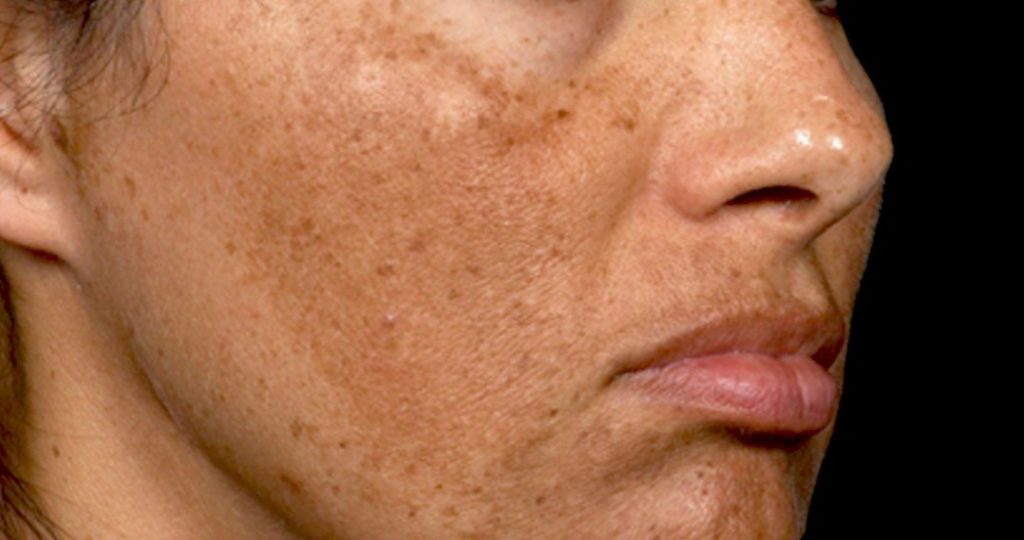Contrary to popular belief, not all women experience the sought after “pregnancy glow.” Aside from weight gain, many women complain about skin problems such as acne, spider veins, and dark blotchy skin or melasma. It is actually the latter occurrence that causes the most heartache for some women.
Melasma, or chloasma, is characterized by dark, blotchy, brown patches of skin on your forehead, upper lip, and cheeks. This common condition also referred to as the “mask of pregnancy”, affects 50- 75 % of pregnant women.
Causes of Melasma
Melasma appears when a steep rise in estrogen and progesterone levels (the primary female hormones responsible for pregnancy) stimulate excess melanin production, also known as hyperpigmentation. Melanin is the pigment primarily responsible for skin color. This increased pigmentation will make your freckles, moles, and areolas appear darker. In addition, you might also see a dark line down the center of your abdomen called the linea nigra which is also caused by melasma and is yet another common occurrence among pregnant women.
Ways to improve Melasma
Melasma is a temporary occurrence in most cases. The discoloration usually disappears after delivery or, in some cases, after you finish breastfeeding. Short-term remedies that may improve melasma include:
- Consuming foods high in folic acid such as green leafy vegetables, oranges, whole wheat bread, and whole grain cereal, which can improve hyperpigmentation.
- Wearing sun-block with a high SPF, ideally 30 or more, can prevent the condition from becoming more pronounced. Any amount of sun exposure, even if mild, can worsen the condition. Ultraviolet rays stimulate activity in melanocytes, cells that produce melanin, which can stimulate hyper-pigmentation.
- Wear a corrective foundation and concealer that are non-comedogenic, hypoallergenic and designed to cover hyperpigmentation.
- Look for a skin polishing kit at your local drug store, which can help rejuvenate damaged skin. A gentle exfoliator along with a good moisturizer, ideally one which contains vitamin A, can potentially assist in boosting cell turnover and reducing the appearance of dark spots. Proper skin hydration as well as cell turnover, is believed to help prevent further discoloration.
What is not recommended
Don’t use peels, lasers, bleaches or other chemically based lightening treatments during pregnancy or while you’re breastfeeding. These treatments may penetrate the skin, which is why it’s best to ask your dermatologist about treatment options. The problem may be exhaustion and poor circulation.
Pregnancy is a time of many changes both physically and emotionally. The key is to take things one day at a time and to keep your focus on the bundle of joy that will soon arrive. Many of the changes, although bothersome, are just temporary.
